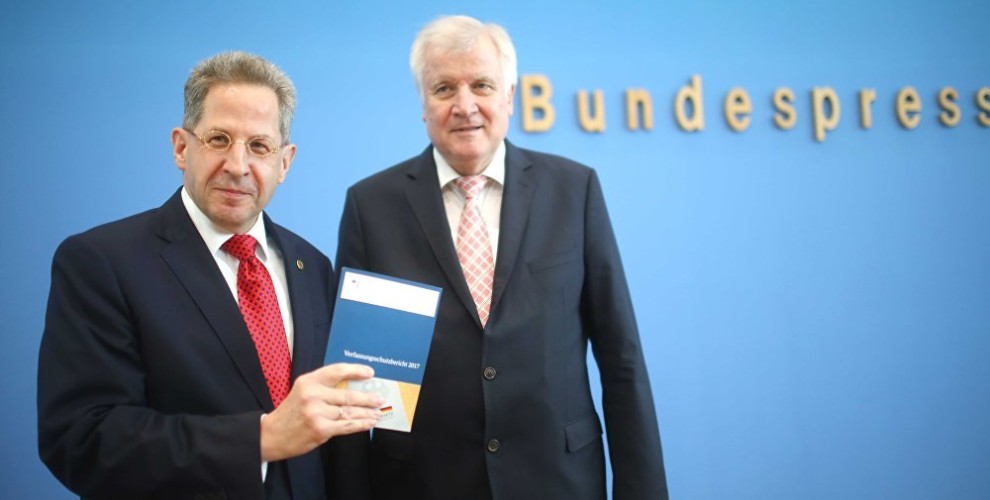German Intelligence points Kurdish institutions as a target
The German Intelligence claimed that the PKK, banned in Germany since 1993, acts through legal organisations.
The German Intelligence claimed that the PKK, banned in Germany since 1993, acts through legal organisations.

Germany's internal intelligence agency, the Federal Office for the Protection of the Constitution, published its 2017 report, and presented it in a press conference in Berlin.
Hans-Georg Maassen, President of the Office, and Horst Seehefer, Minister of the Interior, commented the report underlining the institutions and organizations the Intelligence is following in Germany.
The report, published every year, is 359 pages thick. Approximately 30 pages are dedicated to Kurds and the PKK defined as "The strongest among radical foreign organizations operating in Germany". The number of "members, supporters" of the PKK in Germany is 14.500 thousand, according to the report which added that the PKK has retained its power over the years.
Furthermore, Kurdish institutions such as the Kurdish Democratic Society Center in Germany (NAV-DEM) and Azadi, that struggles for the rights of Kurdish prisoners, were described in details and criminalized.
The report which assessed the resumption of negotiations between the PKK and the Turkish state as unlikely, also argued that PKK supporters were campaigning for a "No" vote in the referendum held in Turkey on 16 April 2017.
The report also underlined how Abdullah Öcalan's situation and the Turkish state's attacks on Kurdish regions are the main issues when it comes to demonstrations, festivals, activities organized by the PKK in Germany to inform Kurds living there.
The German Intelligence Agency, which supports the circular issued by the Ministry of Interior on 2 March 2017, prohibiting many Kurdish symbols, including those of the PYD, YPG and YPJ, among others, claimed that it was also a correct decision to attack the Kurdish demonstrators in Dusseldorf on 4 November 2017. Reminding that many banned flags and Öcalan's poster were confiscated, the intelligence said that an arrest warrant was issued against a demonstrator.
According to the Intelligence Service, Kurdish young people are following the struggle of the PKK in the internet and then get organized.
The Intelligence Service, which claims that the PKK has received more donations in Germany than in 2016, said that the collected money was sent to Kurdish forces fighting against ISIS in the north of Syria and in Northern Iraq.
According to German Intelligence, the increase in donations is linked to the military operations carried out by the Turkish state in the Kurdish regions. The report said: "The attacks of the Turkish army increased the sense of solidarity in Kurdish society."
It is of interest to note that the Intelligence report used the same language of the Turkish state when referring to Kurdish institutions officially operating in Germany. The Intelligence suggested that the PKK uses media tools in a multifaceted way and claimed that the influence of the Kurds living in Germany is one of the intended purposes.
The German Intelligence report referred to Yeni Özgur Politika newspaper as "PKK daily paper" and to ANF as "news agency close to the PKK". This is the first time our agency and reporters are directly targeted with expressions like: "With headquarters in the Netherlands, ANF operates through a network of correspondents in Turkey, Iraq, Iran, Syria and European countries within the scope of the organisation’s information policy. The agency publishes daily in Turkish, Kurdish, English, Spanish, Arabic and Persian."
The German Intelligence report lastly contained a summary of the cases filed against Kurdish politicians on the grounds that they allegedly were "PKK leaders" in 2017.
The PKK has been banned in Germany since 1993. From this date on, no activities were carried out in this country on behalf of the PKK, but German Intelligence accused the PKK of conducting work through a net of Kurdish institutions and organizations.
As it was the previous year, it was stated in the 2017 report that the activities of the Turkish intelligence agency MIT in Germany continued.